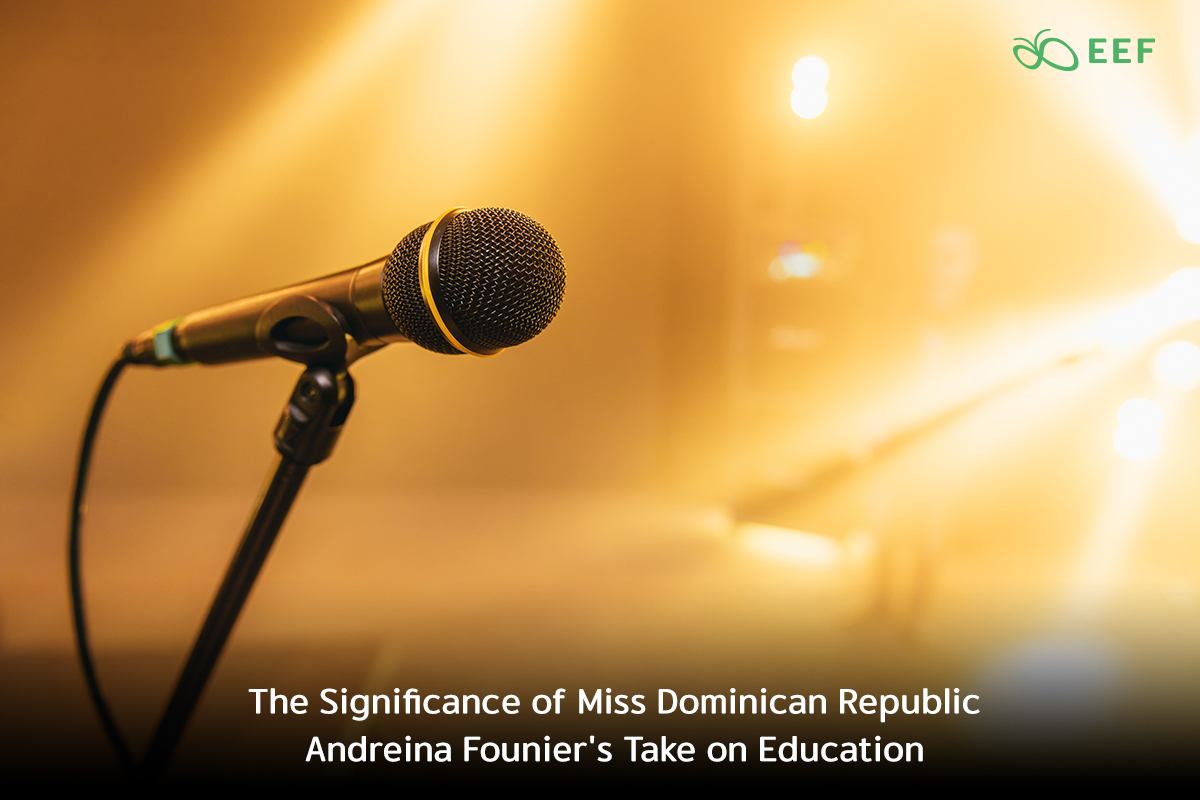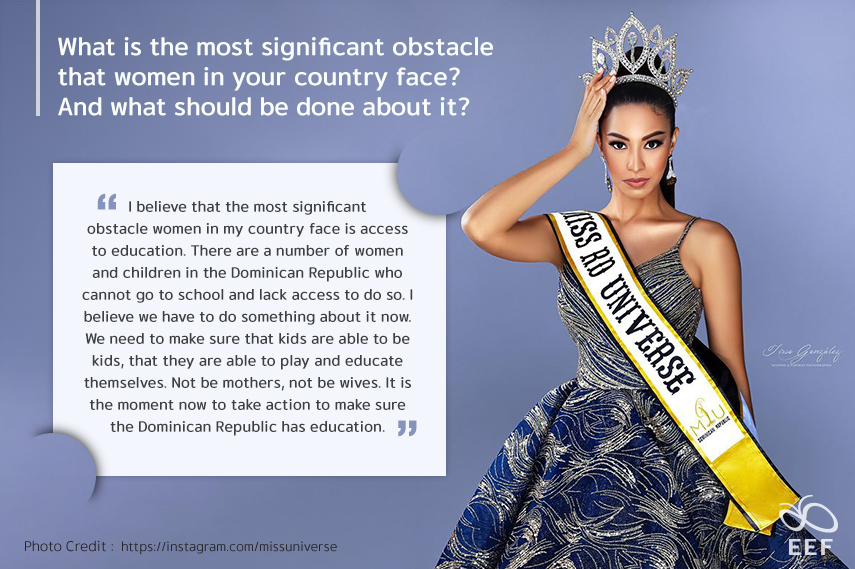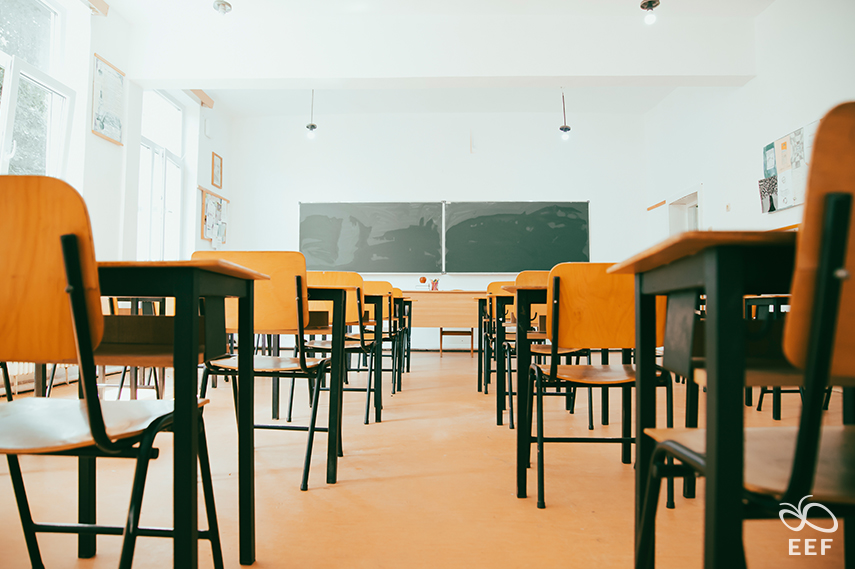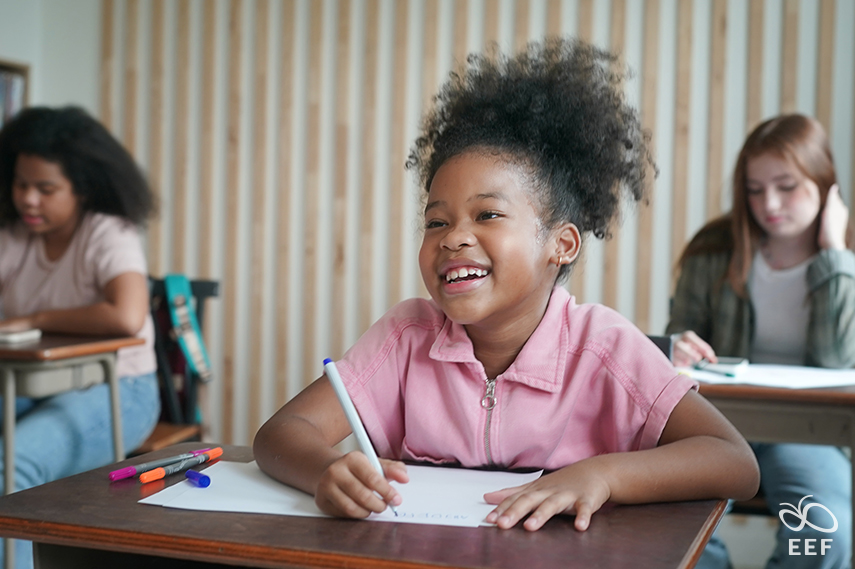
The 71st edition of Miss Universe concluded in New Orleans, with Filipino-American Miss USA R’Bonney Gabriel outlasting the 82 other candidates and crowned Miss Universe 2022. And one of the highlights from the global pageant’s coronation night was none other than when the five finalists competing for the Miss Universe 2022 crown took the stage for the Q&A session, during which each of the beauty queens responded to a different question they randomly picked. And out of the five answers, netizens seemed to be unanimous that the best one arguably belonged to the second runner-up Miss Dominican Republic Andreina Founier, weighing in on how her answer was so simple yet nonetheless eloquent, relevant, resonating, and motivating for the new generations of women.
Her question read: “What is the most significant obstacle that women in your country face? And what should be done about it?,” to which Miss Dominican Republic answered:
“I believe that the most significant obstacle women in my country face is access to education. There are many women and children in the Dominican Republic who cannot go to school and lack access to do so. I believe we have to do something about it now. We need to make sure that kids can be kids, that they can play and educate themselves. Not be mothers, not be wives. It is the moment now to take action to make sure the Dominican Republic has education.”

Photo credit: https://instagram.com/missuniverse
Despite its simplicity, the message holds weight and rings true, clear, and compelling: the right to education must be guaranteed for all. Every child shall have a right to a full-time education of satisfactory and equitable quality in a school that complies with essential norms and standards, without having to pay any kind of fee, charges, or expenses that may prevent them from pursuing and completing education.
The right to education can be seen as a stepping stone to other equally important human rights — a fundamental human right indispensable for the exercise of all other human rights — as an equalizing force that brings about a culture of equity, inclusion, peace, and security in society. It lifts socially excluded children out of poverty and into society, advances their well-being, and levels inequalities all while preventing all forms of violence. Quality education ensures children’s holistic development, giving them opportunities to live better lives. Suffice it to say, education is the cornerstone of a child’s future prosperity.

A lack of access to inclusive and equitable quality education disproportionately affects vulnerable and marginalized populations, especially girls; In the case of the Dominican Republic, it amounts to a vast number of young girls being married off from a very young age to men presumably of an older age, who can then take advantage of their lack of knowledge of their fundamental rights. Young girls should enjoy their youth and go to school so that they have more options in life beyond becoming wives and mothers. They should become wives and mothers only if and when they want to, not because they have no other option or out of necessity. And it is education that opens that door to endless possibilities in life for them.

To guarantee that every child — and, by extension, everyone — in the Dominican Republic has access to inclusive and equitable quality education, all relevant stakeholders must work together. Only then will they have an equal chance of success. Fortunately, the Dominican Republic is moving in the right direction, with its outlawing child marriage starting in January 2021. Thank you, Miss Dominican Republic, for advocating for girls’ education, a cause so important to the global community.
Andreina Fournier’s take on education in the Dominican Republic is in line with the mission of the Equitable Education Fund (EEF) Thailand EEF Thailand aims to support children who need financial and other support, and reduce education inequality through collaboration with various Thai and international organizations.

